Welcome to the Yodo1 Blog
Bringing you the latest news and updates from Yodo1, the mobile gaming industry, and work-from-anywhere culture
Culture

Curiosity and Tenacity: Ismael Kickstarts Gaming Industry Career
06.12.2021
•
5 mins read

Curiosity and Tenacity: Ismael Kickstarts Gaming Industry Career
At Yodo1, we believe that the gaming industry should be open to everyone with an interest, no matter their skill level or experience. Our free courses and training sessions allow anybody who loves gaming to fulfill their dreams of working in the industry.
Many people are drawn in by a personal interest, of course, but some have also come to Yodo1 thanks to a series of happy coincidences.
Meet Ismael
Ismael from Alicante, Spain, wasn’t part of the gaming industry—he’d worked various jobs, mostly in tourism, and was helping some of his friends with translations and marketing for their mobile gaming studio.
“Yodo1 contacted my friends and they don't speak English. So they asked me to look into it and do some research.” He thought he’d just give the company a quick look-over, but when he went to Yodo1’s website and started reading up on the products, he was impressed and wanted to learn more about it.
First Step: Yodo1’s Free MAS Business Development Course
Ismael found the Managed Ad Services (MAS) BD Certification Course and realized that MAS was the product his friends were being offered: a platform that helps mobile game developers optimize the revenue from their games.
Curious, Ismael signed up for the free course. “I thought if I took the course then I’d be ready, see if there was a catch, and avoid any surprises.”
But after taking the course, Ismael had no doubts. “I told my friends that this platform could definitely be helpful to outsource monetization and optimize revenue.”
Ismael dove into the business side of gaming, studying up to twelve hours some days to get a handle on the terminology, industry trends, etc. At first, he felt lost and found it overwhelming, but he kept at it.
His friends’ studio had decided to integrate MAS, and just a week later, “I got an email from Yodo1 telling me I’d passed the course...and that's how everything started,” says Ismael, with a wide smile.
A Day in the Life in the MAS BD Rep Program
Ismael’s new job involved speaking to game developers around the world, helping them onboard the MAS platform and teaching them how to use it effectively. Each morning, he began by preparing for the day’s upcoming calls by playing the developers’ games and researching them online, seeing how MAS could help them.
In addition to the flexibility and the constant opportunities for learning and growth, Ismael found the Yodo1 Team to be one of the best parts of his new job. “This team is amazing. Every time I needed some help, they were there. And I really love the personal connection with our community partners. Of course, I recommend the product, but it’s not just selling for selling’s sake.”
He also discovered a strong, collaborative team spirit: “Here, we work towards what’s best for each developer, and for the company; it’s about we, not I. We look for what’s best for the team, always. And I love it.”
Ismael took up the challenge, refusing to be intimidated by the amount of work and new information. And it has paid off in spades! Only a few short months later, Ismael was offered a full-time position as a Customer Success Manager at Yodo1, a challenge that he embraced with open arms, thanks to the experience he developed in the MAS BD Rep program.
This Could Be You!
Ismael hopes his story provides encouragement and motivation for anyone who’s thinking about taking the MAS BD Certification Course that if they give their best shot, they can be a part of the gaming industry, too.
When asked to describe the atmosphere of working in a team at Yodo1, Ismael’s reply was clear and joyful: “Family, laughs, and team spirit. I know they have my back every time. No matter what happens. Also, Yodo1 likes you to be curious. And this all began because I was super curious.”
Latest Blog Posts
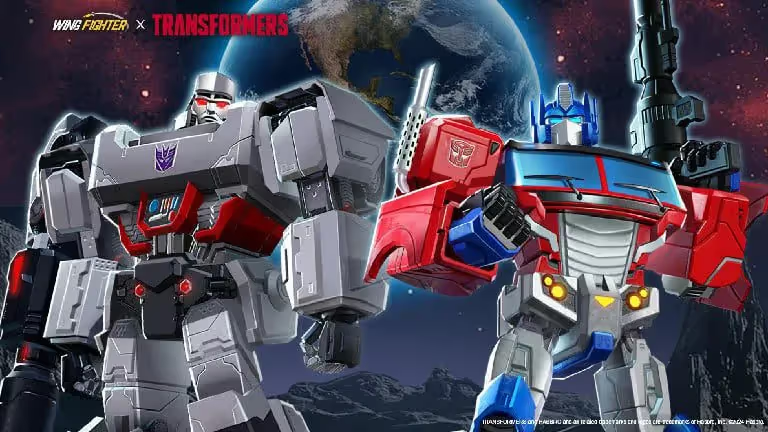

Wing Fighter x TRANSFORMERS – A Battle for the Ages!


Dragonheir: Silent Gods x Dungeons & Dragons – Enter the Third Phase of Epic Collaboration!


TRANSFORMERS bots and Puzzles & Survival Game Unite to Combat a Massive Invasion!


Yodo1 Gathers China’s Top Mobile Gaming Leaders to Explore Global Brand Partnerships in 2025
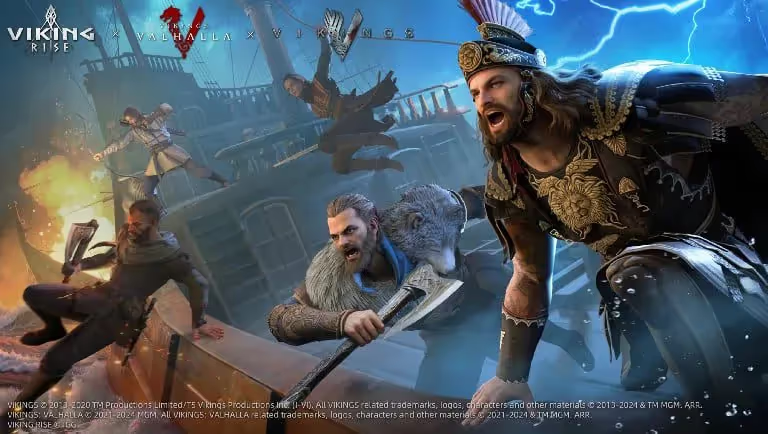

Viking Legends Unite in Viking Rise A Once-in-a-Lifetime Crossover!
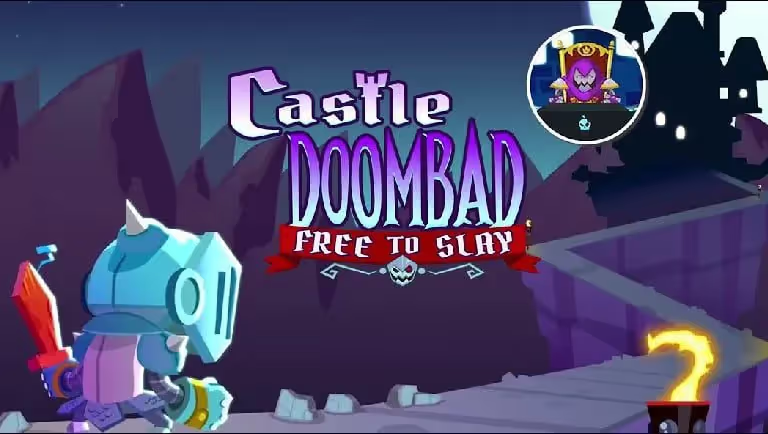

Grumpyface Studios announces Castle Doombad: Free to Slay is available now on iOS and Android devices
Game Growth

Start Getting New Users: Timing and Cost of UA for Mobile Games
08.08.2021
•
5 mins read

Start Getting New Users: Timing and Cost of UA for Mobile Games
User acquisition—or UA—is how you bring new users to your app. It is a strategy for generating the kind of interest in your game that keeps inspiring more people to install and join the fun.
UA videos—often referred to as creatives—are the most common tool but an optimal approach will also include social media campaigns, influencer collaborations, and a killer app store optimization strategy to drive players from first impression to installation.
In this article, we’ll get you started with the what, how much, and when of successful UA campaigns. For more game optimization guides, as well as important industry updates, follow Yodo1 on LinkedIn.
What: Keys to Successful UA Videos
UA videos are an excellent tool for attracting new users, so let’s take a look at how you can optimize your creatives with topics and themes that will appeal to your audience—taking into account their behavior and psychology.
To attract new players and recapture those who have lost interest, here are some examples of videos that can be interesting and useful:
- Game guides for new players
- High-level gameplay for master players
- Level-up videos
- Live-action videos that tell a story
To succeed in UA, you’ll also need:
Product knowledge. Your marketing team must have a solid understanding of the game, its selling points, genre, and potential audience, before starting any UA efforts.
Creative thinking. To appeal to the users you are trying to attract.
Player psychology. To make creative videos based on the players’ preferences and pain points.
Localization: To make your game design and content fit your target markets.
Data analysis. To monitor performance throughout, adjusting and optimizing your UA strategy as needed.
How Much: Understanding UA Cost
When it comes to profitability numbers, UA boils down to one simple formula: making a user’s CPI (cost per install) lower than their LTV (life-time value).
To build your UA strategy, we’ll first concern ourselves with CPI. How high this ends up being depends on multiple factors:
- Quality. If you offer a high-quality mobile game, you can attract a lot of organic users at a relatively low CPI. For example, you can gain free exposure and recognition when app stores pick up and feature your game.
- Creativity. The CPI of top-performing creative videos is much lower than that of poorly performing creatives. In other words, the better your UA video, the less you end up paying to get seen by your audience.
- Target audience. More relevant and accurate targeting comes with a higher CPI than broad targeting because it leads to more valuable users.
- Genre. There is a direct relationship between the genre of your game and how much money players will (or won’t) spend on and in it. Similarly, CPI will vary by game type. Hardcore games that monetize with in-app purchases are likely to have a higher CPI than casual games that monetize with ads.
- Media channels. The most-used global UA channels are Facebook Ads, Apple Search, Google’s UAC, Twitter, TikTok, and Snapchat. And the more advertisers there are competing on a UA channel, the higher the CPI. Consequently, when a market is saturated with user acquisition videos but the audience remains the same size, the CPI will steadily increase.
- UA markets. Tier 1 markets such as the USA, Japan, and China will have the highest CPI. Because people in these countries are bigger spenders, there is more competition to get their attention. Of course, with an effective advertising strategy, your return on investment in these markets will be significantly higher.
When: The Right Time to Invest in UA
UA isn’t cheap, and the best way to make sure you’re investing wisely is to get other aspects of your game ready before the launch of your next ad campaign.
1. Improve Your Retention
Before trying to acquire new users, you need to make sure the ones you already have are staying. If the players you attract organically are downloading your game, playing for five minutes, and abandoning it, the money you invest in UA will end up wasted.
In other words, without retention, your ad spend is more likely to generate a negative ROI. But when you achieve a good retention rate—for example, by engaging your players in a community or by using game mechanics that keep players coming back—you’ll be in a good place to start a UA campaign.
2. Optimizing Your Monetization Strategy
You’ve got to spend money to make money, but you’ve got to make money to spend it. Alongside retention, you have to optimize your monetization strategy if you want a worthwhile UA budget.
Maintaining a game’s cash flow is critical to sustaining UA efforts, especially for small studios—because you won’t see the full return on investment in the form of LTV until the first 12 months have passed.
With rising user acquisition costs, mobile games that aren’t optimally monetized will run out of cash and the ability to attract new players through ads.
How Yodo1 can help
Yodo1’s gaming services platform can help you achieve the metrics you need to start successful UA campaigns.
Our Managed Ad Services (MAS) system combines fully automatic AI-powered ad optimization with the advantages of manual customization to help developers stabilize and increase cash flow.
This frees up time to invest in retaining users through community management, which is what our KTplay platform is all about.
Once your retention and monetization are where they need to be, our global UA experts will guide and advise you in the selection of channels, users, and ad formats, as well as help in the creation process—so you can successfully acquire new users in a myriad of markets.
Contact us at bd@yodo1.com for help elevating your game.
About Yodo1
Yodo1 is a game platform company that helps developers better market, manage, and monetize their games. Our AI-powered tools and global expertise in areas such as mobile advertising, community management, and digital IP licensing enable partners to increase playtime, revenue, and retention. Our vision is to open the world of gaming success to anyone with the talent to develop. To learn more, visit yodo1.com and follow us on LinkedIn.
Latest Blog Posts


Wing Fighter x TRANSFORMERS – A Battle for the Ages!


Dragonheir: Silent Gods x Dungeons & Dragons – Enter the Third Phase of Epic Collaboration!


TRANSFORMERS bots and Puzzles & Survival Game Unite to Combat a Massive Invasion!


Yodo1 Gathers China’s Top Mobile Gaming Leaders to Explore Global Brand Partnerships in 2025


Viking Legends Unite in Viking Rise A Once-in-a-Lifetime Crossover!


Grumpyface Studios announces Castle Doombad: Free to Slay is available now on iOS and Android devices
Culture

Yodo1 Announces Transition to a Fully Remote Company From December 1, 2020
13.07.2021
•
5 mins read

Yodo1 Announces Transition to a Fully Remote Company From December 1, 2020
While some companies are making work from anywhere (WFA) an option, Yodo1 has spent the last two years gearing up to go all the way. On December 1, 2020, we will complete our transition to fully remote by closing the doors of our Beijing office and opening our company to an environment free of traditional work boundaries.
Given its intrinsically global nature, we believe the marriage of remote work and the gaming business is a perfect match. To advance our mission of helping developers around the world turn their games into scalable businesses, we’re building a completely distributed workforce and looking for the best talent available regardless of location.
“I see Yodo1 evolving toward a company where teams can be fluid. The talent we need to fulfill our goals is not concentrated in one place.”
—Henry Fong, Co-founder & CEO
The switch to remote work is also an opportunity for us to put more control in the hands of our employees, as we create versatile, cross-continental teams to serve our partners’ needs in every timezone.
“We trust our employees to make the right decisions for the company and themselves. Our culture of transparency and autonomy empowers and incentivizes our teams, which in turn helps us better serve our partners.”
—James LaLonde, Co-founder & Chief Revenue Officer
Catalyst for Change
COVID-19 was an obvious catalyst. At the start of the pandemic, with both co-founders and half of the core management team stuck outside of China, we quickly experimented with a mobile work framework to keep our company running smoothly.
By March, our entire staff—already scattered across the globe—was set up on an all-in-one business communication platform.
As China began reopening, we made coming to the office optional. Occupancy has since been well under 30 percent.
At the same time we’ve expanded our gaming services platform and grown the size of the teams significantly: doubling our revenue, remotely hiring several dozen new team members, strengthening our online presence, and launching two courses for the new Yodo1 Education platform.
“When I first heard of the switch to fully remote, I was excited that I could work anywhere. I took the plunge and left Beijing to relocate to my hometown of Shanghai. Honestly, I was also a little concerned that it would really work. Initially, it was a challenge but I’ve found that we’ve actually become more efficient.”
—Sun Ke, Head of Publishing
A Three-Step Plan
To make the transition as smooth as possible, we have spent this year constructing a plan that puts employee safety and comfort first. It covers three main areas.
1. Helping employees set up their Work-From-Anywhere workspaces
We’ve made sure that everyone on the Yodo1 team is receiving ample allowance for home office equipment so they can create a work-from-anywhere setup that works for them.
“My favorite thing is not having to wake up super early in the morning and commute to the office. Those hours are mine now. My least favorite part is not seeing my coworkers in person. But I talk to them on a daily basis, as friends.”
—Chaula Bherti, Monetization Strategist
Yodo1 will no longer be in the business of owning and maintaining equipment; instead, employees will use their home office allowance to buy, own, and care for their own equipment.
2. Keeping our people connected
We’re a gaming company, and we want our employees to have fun. At the office, Yodo1 hosted and sponsored several social gatherings—a favorite being Pitch Club, a hub to help people in and out of the company practice and improve their pitching skills.
This weekly event has always been open to anyone, but before COVID-19 it was limited to those in Beijing. When the coronavirus forced us to take the event online, Pitch Club grew and opened its doors to anyone, anywhere.
Internally, our team managers host virtual happy hours and group get-togethers to keep members connected on a human level.
“Communicating well has always been an essential element of working at Yodo1 and it’s one of our strengths. Now we are taking that to the next level.”
—Sonali Varma, Publishing Manager
“When you’re remote, you have to make a bigger effort, both as a team manager and as a team member, to build connections through a camera. It’s possible, but it requires effort. In our case, from our learning corner on Monday to happy hour on Friday, we have some time almost every day where the whole team talks and connects. I also initiate a lot of one-on-one communication with my team.”
—Marina Espin, Head of Business Development
3. Giving our people more control
Last but not least, we are using this opportunity to put more control in the hands of our employees by removing the red tape and rules that are associated with traditional workplaces.
Yodo1’s remote employees can take full advantage of our new work culture and take as many days off they like, as long as they fulfill their work obligations. We are removing all limits on vacation time.
Our people will own their equipment, their schedule, and their decisions.
“Though I was sad at the thought of not meeting my new colleagues in person, I was immediately excited by the opportunities of working from anywhere. Right now I’m in Hainan, a tropical island where the weather is amazing and I can go surfing on the weekend. And I look forward to eventually being able to spend part of the year in my home country, Italy.”
—Filippo Armani, Business Development Manager
What’s next?
As the gaming industry continues its fast-paced growth, Yodo1 sees a future with remote teams spread across the globe, fulfilling our corporate mission of helping game development studios of all shapes and sizes achieve success in local and global markets.
And Yodo1 is hiring! We need new business development associates to help us get products such as our Managed Ad Services across the world. For remote job opportunities in the fast-growing game industry, check out our Careers and Education pages.
“I believe it’s a blessing that the gaming industry can afford to go remote and that we can work with the same efficiency from anywhere in the world.”
—Redwan Reyadh, Monetization Strategist
About Yodo1
Yodo1 is a game platform company that helps developers better market, manage, and monetize their games. Our AI-powered tools and global expertise in areas such as mobile advertising, community management, and digital IP licensing enable partners to increase playtime, revenue, and retention. Our vision is to open the world of gaming success to anyone with the talent to develop. To learn more, visit stg-wwwyodo1com-newtheme.kinsta.cloud and follow us on LinkedIn.
Latest Blog Posts


Wing Fighter x TRANSFORMERS – A Battle for the Ages!


Dragonheir: Silent Gods x Dungeons & Dragons – Enter the Third Phase of Epic Collaboration!


TRANSFORMERS bots and Puzzles & Survival Game Unite to Combat a Massive Invasion!


Yodo1 Gathers China’s Top Mobile Gaming Leaders to Explore Global Brand Partnerships in 2025


Viking Legends Unite in Viking Rise A Once-in-a-Lifetime Crossover!


Grumpyface Studios announces Castle Doombad: Free to Slay is available now on iOS and Android devices
Culture

Beijing Pitch Club Goes Global
10.07.2021
•
5 mins read
Beijing Pitch Club Goes Global

How many times have you found yourself in a situation where you wish you had communicated your ideas in a clearer, more effective way? Whether you’re looking for a new job, buying a house, founding a startup, or interacting with people in the day-to-day, life constantly requires you to pitch.
“According to most studies, people’s number one fear is public speaking. Number two is death. Does that sound right? This means to the average person, if you go to a funeral, you’re better off in the casket than delivering the eulogy.”
- Jerry Seinfeld
Everyone, from every walk of life, can benefit from improving their communication skills, and developing this has been a priority at Yodo1 from day one. That’s how and why Pitch Club was born.
What is Pitch Club?
Pitch Club is an event and a community—of like-minded individuals who are passionate about stories, ideas, and self-improvement. We provide a safe and honest forum of peers where anyone can learn to better express their ideas.
It was first launched by serial entrepreneur James LaLonde, co-founder and co-CEO of Yodo1 Games, in Beijing, China. The impetus for starting Pitch Club was to provide a forum where people can get actionable feedback on their pitches in real time,so they can practice and make rapid improvement in their pitching and communication skills.
What started as a small face-to-face gathering has now grown into a global event, uniting participants from around the world over video conferencing.
The event has become so successful that we are launching a new chapter today! Starting on May 20, Pitch Club Chapter 2 will be hosted every Thursday from 5:30 to 7 pm GMT, making the event more accessible to those in Europe, Africa, and the USA.
No one said pitching effectively was easy. Only by deliberate practice and in-the-moment peer feedback can we improve our public speaking skills. Pitch Club exists to remove the fear and encourage pitchers to grow strong and confident, able to effectively share ideas for better outcomes in work and life.
Put quite simply, at Pitch Club our mission is to empower everyone to become the best communicator they can be—and have a great time in the process!
How does it work?
We believe in deliberate learning. By receiving real-time, honest feedback about your pitch, you will be able to iterate and improve on your communication skills. We give feedback in three ways:
1. Written Feedback. An anonymous online survey completed by the audience immediately after your pitch.
2. Video Recording. A recording of your pitch, delivered personally to you online so you can analyze and evaluate your own performance.
3. Realtime Feedback. The “Pitch Club Feedback Loop'' session after the pitches are completed is a highlight of every event. This interactive, face-to-face finale is where you get open and honest feedback and encouragement from your peers.
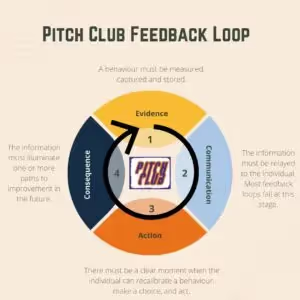
Since it was established in June 2019, Pitch Club has hosted over 150 events with participants from all seven continents and pitches by everyone from high schoolers to top executives. Altogether, over 750 pitches have been presented!
What our pitchers have to say
Alex Olthoff on what he’s learned from pitching: “On a fundamental level, Pitch Club is about communication and ideas. For me that’s such an essential skill: to be able to convey ideas in terms of structure, and convey emotion in a way to persuade others—which are the objectives of communication. It ties into what I value for my own personal identity, which is to be a leader and entrepreneur. Pitching is critical if you want to be one or both of those things, and there’s no better place to practice conveying structure and emotion than in Pitch Club. There’s definitely a sense of community at Pitch Club. You want to be the best and push yourself. At the same time, you get to be appreciated and seen by others for expressing who you are and how you think.”
Kai Liang is also an enthusiastic pitcher: “I have thoroughly enjoyed the participation of a lot of other wonderful and improving pitchers in the club, the positivity and spirit from the Pitch Club organizers, and the community. Life's a pitch and pitching is required everywhere in life. I have been a very confident speaker at international conferences, but more as a matter of necessity than as a result of formal training. So it was amazing to be involved in this living school of speaking where I can improve with everyone else while learning so much about other cultures, other ideas and most wonderfully, other lives. Over a short space of time, I have gained friends I can trust and share everything with. This is far more valuable and rewarding than business deals.”
Do you want to become a better communicator?
By joining Pitch Club, which costs nothing but your time, you will see visible improvements in the way you communicate your ideas in every part of your life.
“Wow wow wow! Pitch Club has been an amazing learning ground to test and improve many startup pitches; helped hundreds of people to improve their pitching and communication skills, and is a beautiful community. Our growth mindsets and the joy we feel giving others feedback, thus helping them improve, is what unites us at Pitch Club.”
Jonas Wolf - Current Host of APAC Pitch Club @TheGrowthWolf
With more people joining Pitch Club every day, we continue to find new ways to learn and grow together, building on our vision that being a good communicator is a valuable skill that everyone can achieve! We are expanding into new realms and we’d love for you to come on the journey with us! Find out more about Pitch Club on LinkedIn and we hope to see you there next time!
Latest Blog Posts
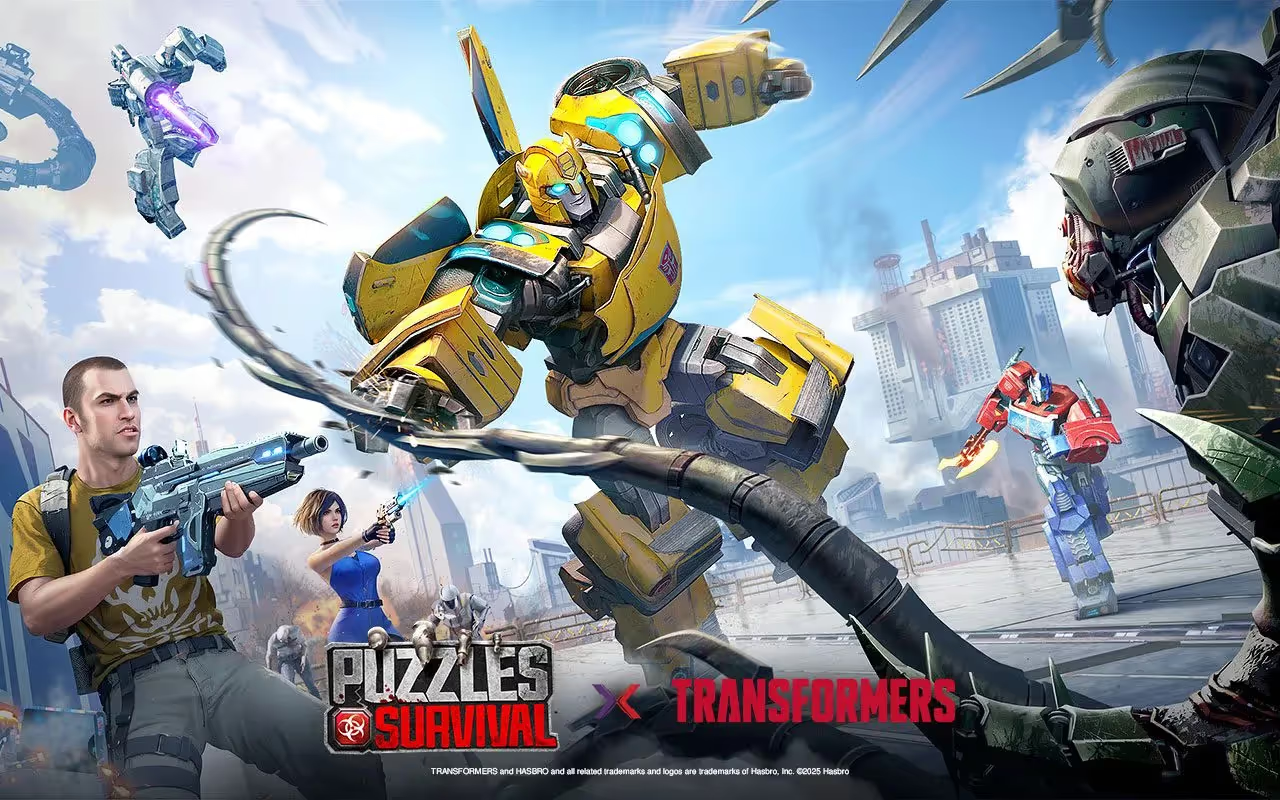

Bumblebee joins the battle for a second Puzzles & Survival x Transformers event
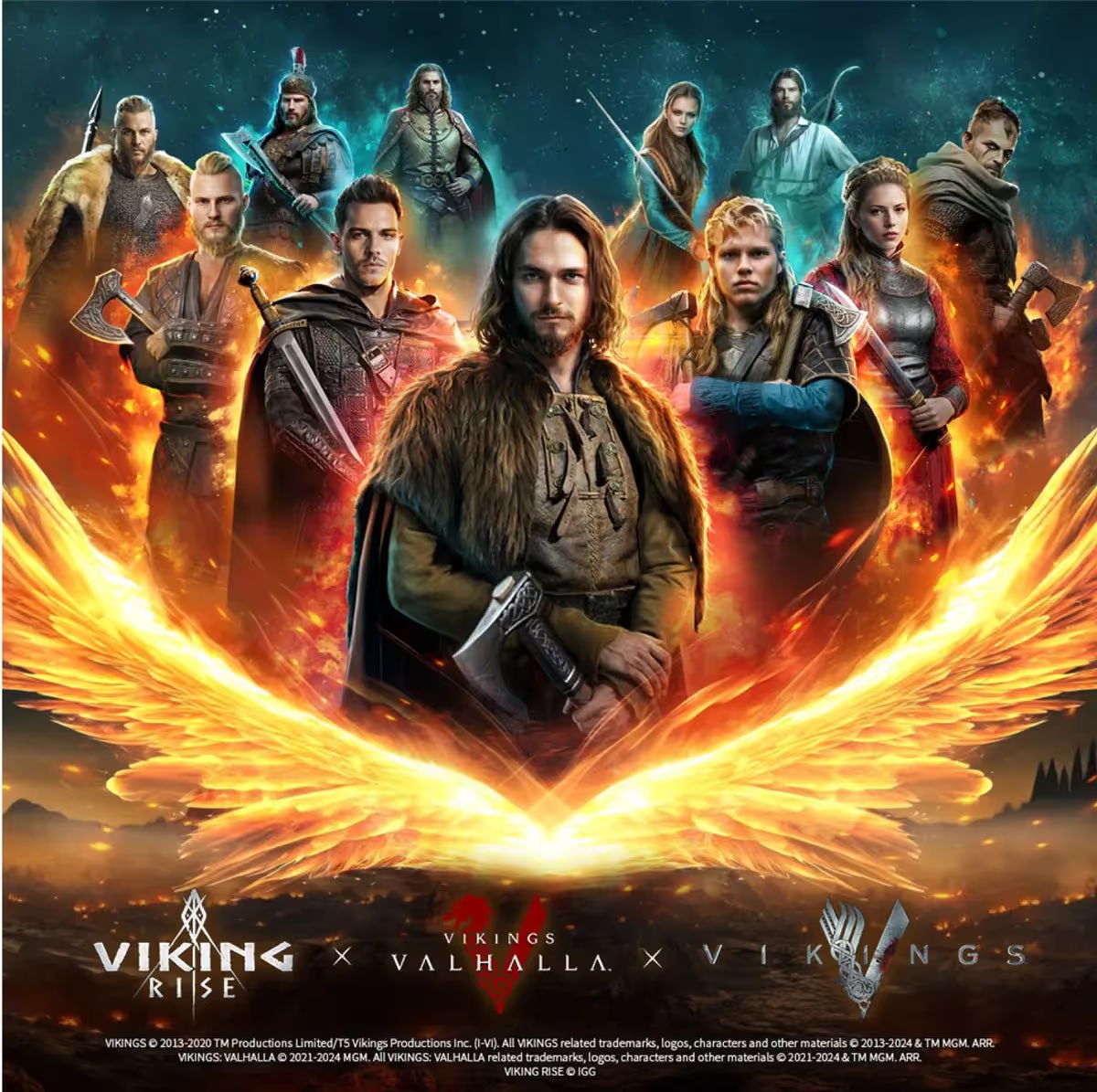

Viking Rise x Vikings: Valhalla Event 4 – The Grand Finale of an Epic IP Saga


Wing Fighter x TRANSFORMERS – A Battle for the Ages!


Dragonheir: Silent Gods x Dungeons & Dragons – Enter the Third Phase of Epic Collaboration!


TRANSFORMERS bots and Puzzles & Survival Game Unite to Combat a Massive Invasion!


Yodo1 Gathers China’s Top Mobile Gaming Leaders to Explore Global Brand Partnerships in 2025
Game Growth

How to Improve Your Mobile Game Monetization Strategy with AI
08.07.2021
•
5 mins read

How to Improve Your Mobile Game Monetization Strategy with AI
Have you ever wondered how your studio can use artificial intelligence to improve the playability and profitability of your mobile games?
We’ll be discussing various ways to monetize a game in future articles, but today’s focus is on how developers can enhance existing game monetization systems with IAP (in-app purchases) and give players a better experience with recommendation systems.
What are recommendation systems?
Recommendation systems use machine learning algorithms to predict whether users will like certain items. Unless you’ve been living in the stone age, you’re sure to have used them yourself.
Turning to the mobile gaming industry, recommendation systems come in handy when players want to, for example, buy new equipment but don’t know exactly what they need yet.
How do recommendation systems make mobile games better?
By giving new players suggestions on where to start and saving established players time by putting the items they’re interested in at their fingertips, recommendation systems make the gaming experience easier to enjoy.
Not to mention that they’ll save you time while optimizing your mobile game monetization model.
According to our data, recommendations have a definite impact on in-app purchases and mobile game revenue.
How AI Helped Our Game Sell More Bundles
At Yodo1, our goal is to design recommendation systems so that as many players as possible can benefit from it and thereby enjoy an enhanced gaming experience.
For example, we can look at a mobile game we’ve been working on recently. We’ll refer to it here as “Robot World”.
Let’s say that, in Robot World, players have to build a team of robots and equip them with tools and special skills to attack other players’ headquarters. To build a unified team, they need to know the robots and the items available to them pretty well.
To guide our players in their decision-making, then, we needed to understand and quantify the delicate relationships between different characters’ skills and tools very well ourselves. This is where our AI team comes in, using a deep-learning technology called self-attention to build our recommendation system.
Before the recommendation system, players were buying bundled items of their own initiative and according to their knowledge of and experience in the game. However, when they weren’t sure what to get, many players simply abandoned the idea of making a purchase.
With the recommendation system, we use AI to decide which item bundles to promote based on what will be most beneficial to each individual—helping convince them of the right purchase and successfully turning even non-paying players into payers.
Here’s how we did it:
First, we used AI to gather data on bundles purchased by players in the past. Then the system could make the same recommendations to players in the present with similar teams and characteristics. Since we used data from experienced players, we were confident that many others in similar situations could benefit from their carefully made choices.
Second, we used the AI-powered recommendation system to better position bundles in the “Robot World” game store, making the user more willing to pay for the right item and improving our mobile game monetization.
Since the space to showcase bundles is limited—and the game has more than a thousand bundles—it was quite a task to have our operating team study the game and manually choose which ones to feature in the store. The AI system, on the other hand, can determine what to display for every individual player—leaving a lot less room for doubt than with the previous system.
The results
With a few rounds of A/B testing, we contrasted our recommendation system based on human suggestions with our new AI-powered one. After 14 days of testing, the AI-driven system’s impression per purchase rate was 47% higher than the human system, driving a sales increase of almost 20%.
Looking forward, our objective is to create dynamic bundles tailored to every single user and their team’s characteristics—abandoning the fixed-bundle model that might contain sub-optimal items for certain players.
Overall, implementing AI in this mobile game elevated our monetization strategy and lowered the amount of human effort needed—effectively optimizing IAP monetization and increasing revenue without major human resource costs.
At Yodo1, we have built an AI-powered product suite of services to help make games around the world more playable and more profitable. Our monetization, marketing, and publishing teams are ready: simply contact us at bd@yodo1.com to bring your game to the next level.
Subscribe to our newsletter and follow us on LinkedIn to learn more about monetization strategies, cutting-edge ad design with banner ads, video ads, and rewarded video—plus advice on the best ad networks to help you make more money with your games.
Latest Blog Posts


Wing Fighter x TRANSFORMERS – A Battle for the Ages!


Dragonheir: Silent Gods x Dungeons & Dragons – Enter the Third Phase of Epic Collaboration!


TRANSFORMERS bots and Puzzles & Survival Game Unite to Combat a Massive Invasion!


Yodo1 Gathers China’s Top Mobile Gaming Leaders to Explore Global Brand Partnerships in 2025


Viking Legends Unite in Viking Rise A Once-in-a-Lifetime Crossover!


Grumpyface Studios announces Castle Doombad: Free to Slay is available now on iOS and Android devices
Culture
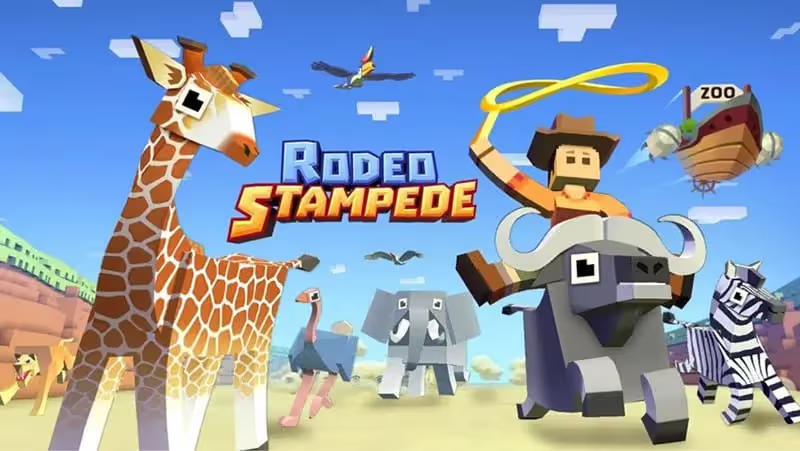
Jobs in Games: How China Convinced Yodo1 Business Manager Marina Espin to Join the Industry
08.07.2021
•
5 mins read
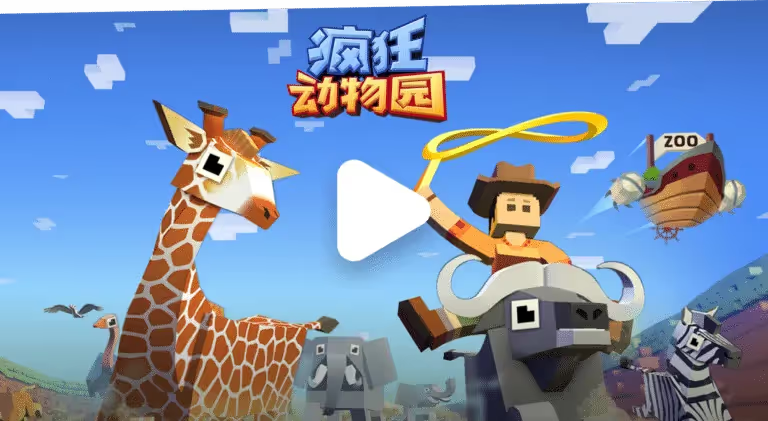
Jobs in Games: How China Convinced Yodo1 Business Manager Marina Espin to Join the Industry
The games industry plays host to a colourful cast of diverse individuals, from artists and coders to narrative designers and studio heads.
The skills to pull off these roles, however, are complex and differing, with each position requiring mastery in its field.
To highlight some of the brilliant work that goes on behind the screen, and help others who may be keen to dive in, PocketGamer.biz is reaching out to the individuals who make up the games industry with our Jobs in Games series.
This week we spoke to Yodo1 business development team manager Marina Espin.
PocketGamer.biz: Can you tell us about your current role and what it entails?
Marina Espin: I'm currently working as head of business development, managing a team of business development managers responsible for establishing partnerships with mobile game developers from all over the world. Our goal is to make their games more successful and help them make more money with them. And let’s not forget that we play a lot of games too!
Besides that, I go to gaming events (*wink* *wink* PCG London) to meet amazing people in the industry, catch up with friends and learn about new trends in gaming.
"Once I started talking with people in the games industry, I got seduced by it so I decided to try my luck and apply for a job at Yodo1."
MARINA ESPIN
How did you first get into games and how did you progress into the role?
I moved to China three years ago to study Mandarin. I used to work at TED Beijing where I had the chance to get in touch with key players in leading tech industries in the country. Once I started talking with people in the games industry, I got seduced by it so I decided to try my luck and apply for a job at Yodo1.
I first started as a business development manager in the company and felt very motivated since the beginning. In my second week, I got the approval from my manager to go to my hometown of Barcelona to attend GameLab, the main gaming event in Spain. I made a lot of connections there and learned a lot, pushing myself out of my comfort zone all the time.
One of the most successful partnerships from there is Keplerians, as we started working with them on ad monetization and have been growing together since then. The company rewards and promotes young talent, people who are motivated and looking for new challenges. I believe my attitude has been one of the key ingredients that helped me succeed here.
Is it something you ever imagined yourself doing?
I've always thought of videogames as something to do in my spare time or together with friends. When I was little, I never even thought about the existence of a whole industry, not to mention actual jobs there.
What did you study (if anything) to get your role? What courses would you advise for aspiring professionals in the area?
My bachelor's degree has been economics-focused, while I attended my master's degree in China with the goal of better understanding how business, economics, and politics work in the country.
My personal experience in games practically all comes from my working experience. I have not studied anything specific which, to be honest, I would love to do someday. One of my goals is to be able to create my own game in the mid-run.
Hang Line: Mountain Climber – Now Available on iOS and Android!
For people with the desire to enter the industry, I think that having knowledge about programming or hands-on experience in business would facilitate the transition.
However, at least regarding my position, the most important traits are definitely adaptability and problem-solving more than any specific course attended. When interviewing a candidate, we always look for someone who’s open and easy to work with, who's able to change fast in tune with a fast-changing industry. And who's comfortable getting out of the comfort zone.
What part of your role do you find most fulfilling?
Partnering with others and building meaningful connections always represents a huge learning opportunity, and I personally love meeting new people and chatting with them, so sometimes our partnerships look more like friendships than anything else, making the job even more exciting.
At the same time, seeing how our partners grow, how they work on new games and how they overcome bigger challenges is extremely fulfilling and makes all the effort worth it. Growing together is our ultimate goal.
Plus, running a team and seeing how the team members learn, grow and improve, both personally and professionally is the most satisfying part of my day to day job. All my efforts are towards helping them become better every day, by sharing with them everything I've learned before.
"Overall, the fact that the games industry is so dynamic and innovating makes it exciting and at the same time demanding"
MARINA ESPIN
What are the biggest difficulties you have encountered since joining the industry?
The industry is definitely very high-pace, especially in China. For example, with the recent regulation limiting playtime for minors coupled with the announcement from Apple regarding the necessity of an ISBN license, the landscape keeps changing and the challenges keep coming.
Overall, the fact that the games industry is so dynamic and innovating makes it exciting and at the same time demanding: if you don't know how to quickly adapt, you're done for!
Also, being only 25 years old I realised how difficult and complicated really is managing and motivating a team of people, coordinating with multiple departments to reach our common goals.
Do you think there are any misconceptions, public or professional, surrounding your area of expertise?
What I noticed, especially when attending gaming events, is how most of the attendants are men, which definitely makes it more challenging for women to find their spot.
Moreover, the fact that I'm so young requires me to be more mature and always ready to step up my game to earn everyone’s trust and respect.
Is there anything about the job/industry you wish you would have known when first joining?
I keep learning new things every day, but I would have certainly loved to understand or know more about it since the beginning. However, I truly think that it's all been part of the adventure and learning experience so, ultimately, I wouldn't change anything.
One of the things I should have picked up earlier was to constantly keep myself informed on the latest news in the industry. By reading the different media outlets, one of which is yours truly, you can always be aware of what is going on around you.
What other advice do you have for someone looking for a job in this profession?
Jump into it and dive! Talk to a lot of people, knock on different doors and make connections so you can get your dream job. Don’t be afraid of being bothersome: people in the games industry are willing to help each other, share learnings, and give a hand to newcomers.
Rodeo Stampede | Mountain Zone
Think about what’s your 'special sauce' and what is unique about you. If you want to be a rockstar, you should work in something you really like and something you’re good at. Remember that gaming will give you a lot of fun, and can also give you a great job!!
https://www.youtube.com/watch?v=-DAal6dC7rA&feature=youtu.be
Latest Blog Posts


Wing Fighter x TRANSFORMERS – A Battle for the Ages!


Dragonheir: Silent Gods x Dungeons & Dragons – Enter the Third Phase of Epic Collaboration!


TRANSFORMERS bots and Puzzles & Survival Game Unite to Combat a Massive Invasion!


Yodo1 Gathers China’s Top Mobile Gaming Leaders to Explore Global Brand Partnerships in 2025


Viking Legends Unite in Viking Rise A Once-in-a-Lifetime Crossover!


Grumpyface Studios announces Castle Doombad: Free to Slay is available now on iOS and Android devices
Culture
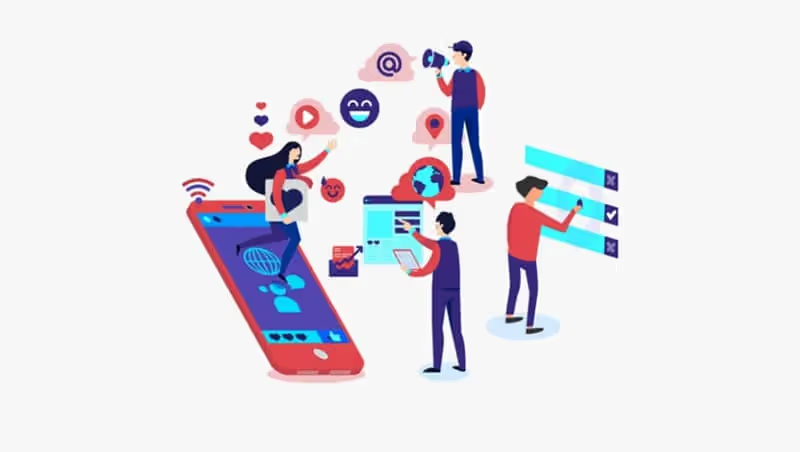
Thrive While WFA With These Five Tech Tools
10.02.2021
•
5 mins read

Thrive While WFA With These Five Tech Tools
While 2020 had many people around the world working from home (WFH), here at Yodo1 we’ve taken it a step further: on December 1, 2020, Yodo1 completed its transition to a fully work-from-anywhere (WFA) company. We closed our Beijing office doors for good and are embracing an environment of productive flexibility—from absolutely anywhere!The plus points of working from anywhere could fill up an article in themselves, but it’s not without its challenges, either. Luckily there are a host of tools available to help meet these, and ensure both that our work is done efficiently and effectively, and that we can keep our company culture going and stay connected, even though we’re spread across the world.If you’d like to dig into this topic further, check out this informal round table of Yodo1 staff around the world sharing their own diverse experiences: what they love about WFA as well as the obstacles and some practical tips for meeting them.
1) Making the Most of Virtual Communication
As you can imagine, with everything now online, communication is a major part of everyone’s workday. Part of Yodo1’s culture is “keeping everything in the sunshine”—meaning that we all stay in touch, share what we’re doing, and don’t wait till things are finalized to present them to the group. We use a work communication platform so we can plan meetings, chat and share files anytime with anyone, anywhere. Department groups can focus on their specialties, while the company-wide group keeps the whole team united and on the same page.
2) Meetings in Real Time, from Anywhere
Zoom isn’t new by any means, but it’s now a part of daily lives: we have 1:1 meetings, team meetings, and even company-wide ones. We always try to keep meetings as short as possible and as long as necessary, and adhere to agreed-upon start and end times out of respect for everyone’s time, as well as the time zone differences. We can also watch recordings to catch up on a meeting if we've had to miss it, just like an online lecture.
3) Async Meetings: Making Multiple Timezones Work
With a team that’s based all over the globe, getting people together across those aforementioned time zones can be a challenge. When a Zoom meeting doesn’t fit the bill, opt instead for tools like VideoAsk or Loom—they’re great to pitch ideas to each other or record quick tutorials in the form of short videos. Our colleagues on the other side of the world can then watch them in their own time and respond accordingly.This is a new way of communicating for some, and it can take a bit of getting used to, but the benefits go beyond just what we’re discussing in that particular meeting or video: people’s video presence, confidence and communication skills are visibly improving! Communication is of utmost importance at Yodo1; it's such an important life skill no matter the situation, and any time spent improving it has benefits that stretch far beyond the immediate.
4) Collaborative Workspaces
It can be hard to visualize a project and see where everyone is at in their work when people are in different teams and work pipelines. Online platforms like Airtable and Notion help us store, organize, collaborate and work on just about anything from anywhere, from content planning to company recruitment. Collaboration can really enhance creativity and no matter what the project, we like to have input from as many people as possible.
5) Having Fun
When working from anywhere, you may find that you miss those elements of working in an office that you once took for granted, like having a quick catch-up in the elevator or getting to know one another over lunch breaks. At Yodo1 we encourage team members to engage outside of work hours and enjoy each other’s company without having work on our minds all the time.That’s why we have a company Discord server—a place to host online events, share hobbies and nurture interests: gaming, cultural exchanges, sharing music, health and lifestyle tips, and even our favorite recipes!
Do you want to work remotely?
So whether you appreciate the freedom and space or are missing the day-to-day interactions of office life, check out some of these tools that we use at Yodo1 to stand in for in-person interactions. You may need to invest some time and effort to fully master them, but they will enhance your work life immeasurably, and learning new things is a vital life skill anyway, right?And finally: we’re always hiring, so if our work environment sparks your interest, check out our Careers page and you might be the next to join our diverse and fully remote company, WFA.
Latest Blog Posts


Wing Fighter x TRANSFORMERS – A Battle for the Ages!


Dragonheir: Silent Gods x Dungeons & Dragons – Enter the Third Phase of Epic Collaboration!


TRANSFORMERS bots and Puzzles & Survival Game Unite to Combat a Massive Invasion!


Yodo1 Gathers China’s Top Mobile Gaming Leaders to Explore Global Brand Partnerships in 2025


Viking Legends Unite in Viking Rise A Once-in-a-Lifetime Crossover!


Grumpyface Studios announces Castle Doombad: Free to Slay is available now on iOS and Android devices
IP Licensing

The Power of Brand Injections in Mobile Games
06.02.2021
•
5 mins read
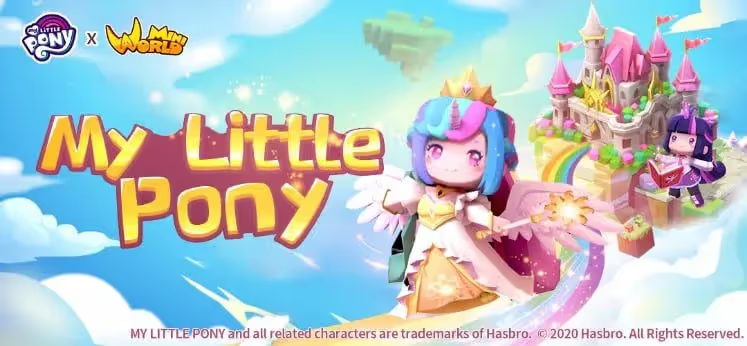
The Power of Brand Injections in Mobile Games
The collaboration between IP holders and game developers to integrate top brands into existing games or make brand new ones has been around for a long time. In the early 90s Battletoads/Double Dragon was an early example of the power of brand injections into games and the success it can bring. It had great reviews at the time and retrospectively won the best overall game at the 1993 Nintendo Power Awards.
Since then gaming has obviously moved on and the advent of the mobile phone has made this segment of the gaming industry a fast growing and exciting area , enabling both IP holders and game developers to grow their audience and revenues, a true win-win.
Brands being integrated into games range from iconic characters in movies, TV shows and anime to fashion, sports teams and players or musical artists and influencers. These types of integrations facilitate increased engagement with the brands from players who are able to enjoy fresh and exciting content using the brands they love in the games they play.
Yodo1 is a company leading the charge in this field of gaming, exemplified by its partnership with Hasbro. By licensing Hasbro’s world-class IPs such as TRANSFORMERS, Yodo1 has been able to help its partner studios to amplify, enhance or create new games in cooperation with these IPs. An excellent example of this is the Mobile Legends x TRANSFORMERS collaboration that ran in August 2021.
See trailer
How Games and IP HoIders Benefit From Brand Injections
Brand injections offer both the IP holders and the game developers great opportunities and benefits:
The IP holder can
- Expand their brand’s exposure by reaching new audiences in the most engaging format of entertainment.
- Generate a new or an additional revenue stream for their brand.
- Provide another marketing channel for the brand overall.
- Reclaim lapsed brand audiences/fans by offering them something new and exciting.
The game developer can
- Reach new and wider audiences as a result of the popularity of the IP holder’s brand.
- Grow their revenue stream as a result of more engagement and monetization in their game from a bigger audience.
- Keep the game fresh and exciting by using branded campaigns to highlight new features within the game, thus retaining players.
A recent collaboration by Yodo1, Hasbro’s TRANSFORMERS and the strategy game Top War highlights the realisation of these benefits and opportunities. The two week in-game event took place in August, 2021 saw the TRANSFORMERS IP injected into the game. Over 13 million players globally participated in this event, which saw 50% of daily revenue for the game come from TRANSFORMERS related sales.
How Big is the Brand and What is its Potential
To ensure the right brand is selected for the right game and genre a developer must research the IP reach, potential and potential. In all areas of consumerism, the stronger the IP or brand’s connection is to its audience, the stronger is its ability to provide a ROI. This is because an excellent IP drives awareness and creates an instant emotional attachment with the audience.
Three out of five titles on Google Play’s top section (on the Game’s category, 20th Sep 2021) are strong IP branded games
For mobile gaming this is exemplified by Apple’s IOS and Google’s Play stores regularly featuring IP-based titles in their prime merchandise banners, and people often searching for the IP itself.
This is great when marketing the title as consumers instantly recognize the brand and form an association with the game, as well as having the chance to participate in the storylines and lore that the IP already offers. All of this can significantly reduce customer acquisition costs and drive long-term engagement in the game.
Therefore a developer, must thoroughly research the brand and identify:
- How popular is it within its local market as well as globally?
- How strong is the brand within gaming?
- How long has the IP existed and when was it most popular?
- Which demographic does the IP most appeal to?
- Are there any events, content and/or new non-game products that are to be released in relation to the IP?
- What is the IP holder’s track record of managing IPs (how many of their brands are held in high esteem)?
Matching the Brand With the Right Game Genre
In theory these collaborations sound quite straightforward, but they can quickly go awry if the brand does not match the game. For example a zombie game almost certainly wouldn’t work with an IP such as the Teletubbies (and the IP holder probably wouldn’t permit it).
When selecting an IP, a developer would need to consider the game’s theme, its audience and how the IP can be aligned with those elements as well as the game’s mechanics. For example some hypercasual games which have short life cycles may not work well with IP injections because they rely more on ad monetization rather than in-app purchases, which is a more common and effective way to capitalize on the brand injection.
On the other hand, The My Little Pony IP has proven to be an excellent example of a brand injection for the sandbox game Mini World. Through Yodo1’s Hasbro partnership, developer Miniwan Technology injected the brand into the game and saw excellent results. There was a boost in sales with 180,000 skins of Twilight Sparkle and Princess Celestia sold within the first week and exceptionally high engagement over the two weeks from launch, with 10 million views and 750,000 comments on My Little Pony topics in online communities.
See trailer
The Brand Should Enhance the Game
Once the appropriate brand is selected, a developer will also need to consider how the IP can showcase the game, drive engagement and bring joy to fans through its gameplay. If they don’t, they won’t win over the audience.
For example, the Tom and Jerry game created by NetEase was designed to be fun and quirky, much like the characters, as the IP caters to a casual audience. It wouldn't have made sense to implement hardcore-game mechanics, as that would only have put off the show's biggest fans.
An alternative example would be an RPG like Marvel Future Fight (by NetMarble). RPG games often center around character growth, specialized weapons, and rich backstories Therefore an IP such as this would enhance the player’s gaming experience as it features well-loved heroes and notorious villains whose personal histories and characteristics can be immersed into the game to enhance the plot.
See trailer
With IP holders keen on opportunities to collaborate, large game publishers and developers who take the above advice into account can easily find the right IP to give their titles even more traction.
Over the years, third-party IP licensing has yielded notable results, which are growing rapidly in the mobile game market. So if large publishers and developers can find the right IP to best fit their game's characteristics, approach IP rights holders, and integrate the brand into their game (theme, products, and gameplay mechanisms) they may be on the win-win path.
So whether you are a developer or an IP holder looking to take advantage of IP licensing, contact Yodo1 to get started. Through their Brands in Games team (BiG), years of experience, and expertise, they are able to help acquire the right IP for the right game, helping you on the path to a true win-win.
This article first appeared on Pocket Gamer.
Latest Blog Posts


Wing Fighter x TRANSFORMERS – A Battle for the Ages!


Dragonheir: Silent Gods x Dungeons & Dragons – Enter the Third Phase of Epic Collaboration!


TRANSFORMERS bots and Puzzles & Survival Game Unite to Combat a Massive Invasion!


Yodo1 Gathers China’s Top Mobile Gaming Leaders to Explore Global Brand Partnerships in 2025


Viking Legends Unite in Viking Rise A Once-in-a-Lifetime Crossover!


Grumpyface Studios announces Castle Doombad: Free to Slay is available now on iOS and Android devices
Culture

Yodo1’s Automated English Training Program is Changing the Game and Getting Results!
06.02.2021
•
5 mins read

Yodo1’s Automated English Training Program is Changing the Game and Getting Results!
International work-from-anywhere (WFA) companies were an alien concept to many before Covid-19 hit. Not so at Yodo1. After years of growing different business lines from our origins in China, we grew into a global company, and then made transition to becoming fully WFA in December, 2020.
As with any sea change, there have been challenges and hurdles to find solutions to. A big one is that many core staff members from China lacked sufficient English skills to engage with new international teammates. Being able to communicate well is a company mantra, and most of the staff were accustomed to doing so primarily or fully in Chinese before the WFA transition made English the lingua franca.
We knew immediately that we needed a way to bring employees, who work across 33 countries, together. With the goal of everyone communicating successfully in one common language, Yodo1’s English Training Program was born.
What is the English Training Program?
The English Training Program is an internal program to help Chinese-speaking staff improve their English communication skills so that they can interact effectively with their colleagues. Launched in March and running through the rest of 2021, it uses a combination of lessons, assignments, activities, events and evaluations.
Assignments are sent out twice a week, along with buddy feedback submissions, and there are two live English events per week. The program is run by Luke Priddy, Yodo1’s Head of Education, who has years of experience teaching and creating English language learning material, including via his own YouTube channel.
What makes it different?
“We use an automated system for sending assignments and feedback submissions, along with reminders, to ensure that participants are keeping with the program. There is also a cash prize for those who participate in the video pitching challenges,” explained Luke.
"Ultimately, Yodo1 is an international company. We have employees working across projects from many different countries. Simple fact: English is the language of international business. That creates an immediate problem for those staff used to operating completely in Chinese, which was the case before the move to WFA and a more international workforce.”
In light of this, helping Chinese staff who didn’t speak English well become acquainted with an English environment was a top priority. As luck would have it, James LaLonde (Yodo1 Co-CEO), Terry Wang (Product Head at Yodo1), and Luke had just spent the last five years running a language learning platform, which built a community of nearly 5,000 online tutors, more than 100,000 active students, and close to two million subscribers worldwide. The core curriculum included 320 time-tested lessons. It was an obvious choice to use that curriculum for our training program.
“The next challenge was running Yodo1’s English training at scale, since hiring teachers and doing individual lessons wasn’t feasible for the nearly 120 staff enrolled in the program. So we built an automated system for sending assignments to participants,” explained Luke.
“The key thing is that participants are required to speak, to actually use the language. Their assignment then goes to a buddy, who watches it and gives them feedback. This approximates the demands of an international, English-speaking work environment, establishes accountability, and gets participants used to using the language.”
What do participants think?
Even the best program in the world is only as effective as those who take part in it, and Yodo1 employees have been whole-heartedly embracing the challenge. “We’ve seen solid results so far, with high completion rates and more people joining the weekly live events. We are creating an English ethos step-by-step," says Luke.
Huizi, the Recruiter and Hiring Success Manager who’s been with Yodo1 for a year now, says of the program: “I think it’s a good way to enrich our thinking. We talk to the team and others about work every day, and almost no other topics are involved, but the program allows us to talk more outside of work. After submission, my partner will give me some feedback; on what I’m doing well and what I can do better. I’ve been learning a lot from them.”
UA Creative Designer Liu Jing is also an active participant, going the extra mile and really putting in the time. “Learning English is not a simple matter; you need to be persistent and brave, and you will gain a lot. Recording and reviewing are helpful to me: I take time to do my homework seriously, and to record the words and sentences that I find difficult in it, and read them every day.”
Yodo1 is committed to personal development
The English Training Program continues to go from strength to strength. Yodo1 is committed to investing in the ongoing personal growth of its staff. Helping them improve their working English skills is just one way we do that.
If this work environment sounds like a place where you’d thrive, check out the openings on our Careers Page.
About Yodo1
Yodo1 is a game platform company that helps developers better market, manage, and monetize their games. Our AI-powered tools and global expertise in areas such as mobile advertising, community management, and digital IP licensing enable partners to increase playtime, revenue, and retention. Our vision is to open the world of gaming success to anyone with the talent to develop. To learn more, visit stg-wwwyodo1com-newtheme.kinsta.cloud and follow us on LinkedIn.
Latest Blog Posts


Wing Fighter x TRANSFORMERS – A Battle for the Ages!


Dragonheir: Silent Gods x Dungeons & Dragons – Enter the Third Phase of Epic Collaboration!


TRANSFORMERS bots and Puzzles & Survival Game Unite to Combat a Massive Invasion!


Yodo1 Gathers China’s Top Mobile Gaming Leaders to Explore Global Brand Partnerships in 2025


Viking Legends Unite in Viking Rise A Once-in-a-Lifetime Crossover!


Grumpyface Studios announces Castle Doombad: Free to Slay is available now on iOS and Android devices
Get Updates From Yodo 1




